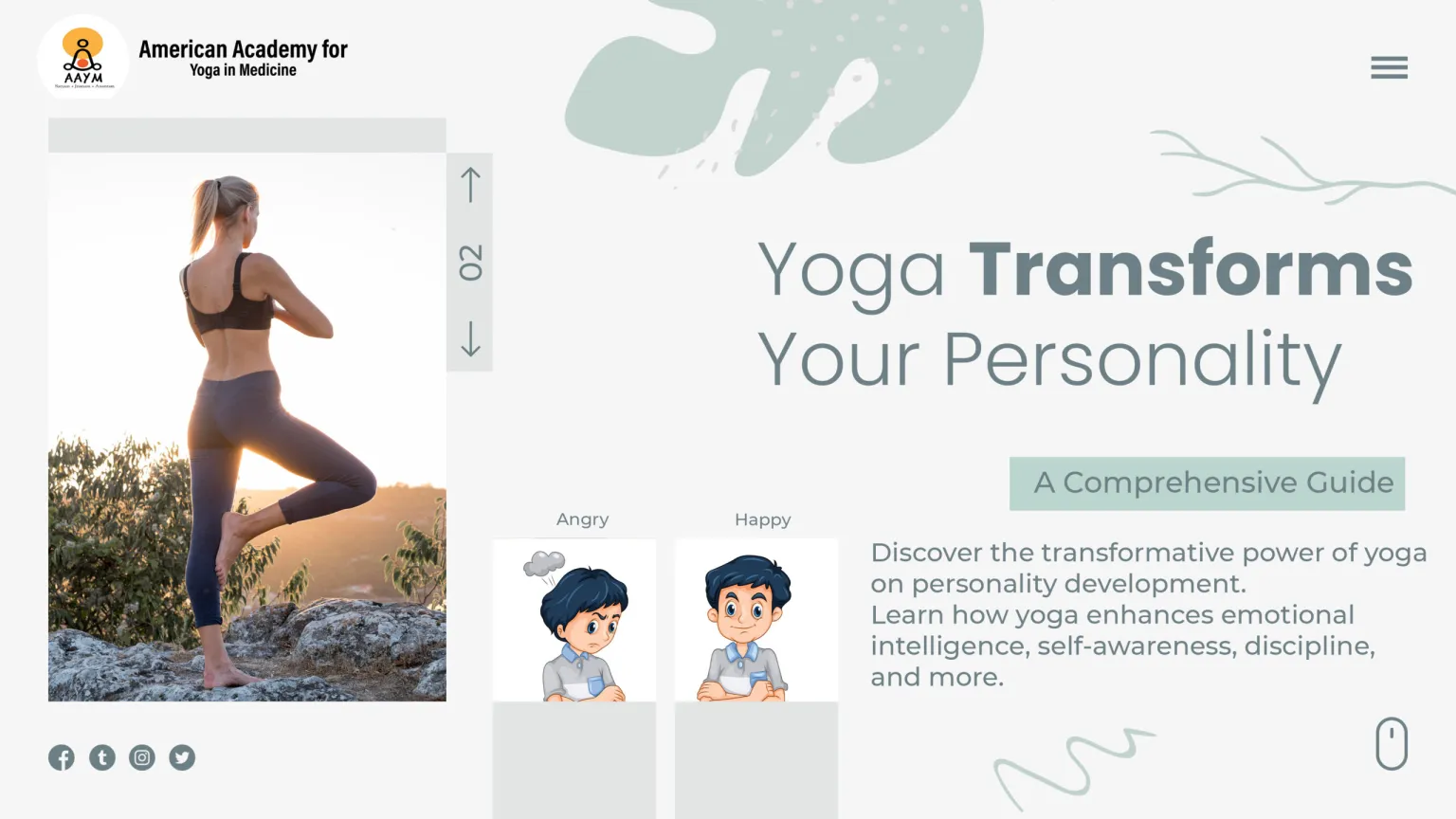Discover the transformative power of yoga on personality development. Learn how yoga enhances emotional intelligence, self-awareness, discipline, and more.
How Yoga Helps in Personality Development: A Comprehensive Guide
Introduction: The Untapped Potential of Yoga in Personality Development
Personality development is a lifelong process involving the growth and refinement of one’s character and behavior. While many turn to self-help books or workshops, yoga offers a holistic approach. According to a paper in the International Journal of Indian Psychology, yoga can enhance the quality of life by providing a positive sense of self and decision-making skills. In this blog, we’ll explore how yoga can be a transformative tool for your personality. We’ll delve into the scientific research and real-world examples that demonstrate yoga’s multifaceted impact on personality development. For those interested in a structured approach to yoga for personality development, the American Academy for Yoga in Medicine (AAYM) offers specialized courses.
The Psychological Aspects of Yoga: More Than Just Physical Exercise
Yoga is not just about physical postures; it’s a mind-body practice that enhances psychological well-being. The practice helps increase focus, reduce stress, and achieve emotional balance. These psychological benefits are crucial for personality development. A paper in the International Journal of Yoga supports these claims, highlighting how yoga can help individuals develop emotional stability and mental clarity. For more in-depth information, you can join AAYM’s webinars that delve into the medical and psychological benefits of yoga. These webinars provide a deeper understanding of how yoga can be a powerful tool for mental health, thereby contributing to a more balanced and resilient personality. Beyond the webinars, yoga’s psychological benefits also extend to improving memory, enhancing mood, and even helping to manage symptoms of anxiety and depression. The practice encourages mindfulness, which is a key component in cognitive behavioral therapy, a commonly used psychological treatment.
Yoga and Self-Awareness: The Inner Journey
One of the most profound benefits of yoga is the development of self-awareness. Through practices like meditation and mindful breathing, yoga encourages you to turn inward. A paper in the Journal of Education and Practice supports this, stating that yoga can help adolescents develop self-awareness and self-regulation. For more resources on this, AAYM’s blogs offer valuable insights. These blogs cover a range of topics, from the basics of yoga to its more nuanced psychological benefits, providing you with a comprehensive guide to understanding how yoga fosters self-awareness and personal growth. This self-awareness is not just about understanding your own emotions but also about recognizing your behavioral patterns, which can be crucial for personal development. The practice of yoga encourages introspection and self-reflection, helping you to better understand your motivations and aspirations.
Yoga and Discipline: Building Consistency and Willpower
Consistency is key in any endeavor, and yoga is no exception. The regular practice of yoga instills a sense of discipline that translates into other areas of life. A paper in the Think India Quarterly Journal discusses how yoga can help individuals develop a positive attitude and emotional stability, essential for achieving career goals. AAYM also offers courses that focus on building discipline through yoga. These courses are designed to help you integrate yoga into your daily routine, thereby fostering a disciplined approach to life that is beneficial for both personal and professional development. The discipline gained from a consistent yoga practice can also help you in maintaining a balanced diet, sticking to a study or work schedule, and even in managing finances wisely. It’s a holistic approach to discipline that permeates every aspect of life.
Yoga and Emotional Intelligence: Navigating Social Dynamics
Emotional intelligence is the ability to understand and manage your emotions while also being sensitive to others’ feelings. Yoga helps improve emotional intelligence by promoting mindfulness and stress management. These skills are invaluable in social interactions, whether in personal relationships or the workplace. The Journal of Education and Practice also supports this, stating that yoga can help adolescents develop empathy and social skills. For more insights, you can explore AAYM’s blogs. These blogs delve into the emotional and psychological aspects of yoga, offering practical tips and exercises to enhance your emotional intelligence. The practice of yoga teaches you to be present, which is crucial in listening and responding effectively in social situations. It also helps you recognize emotional triggers and teaches you how to respond rather than react, thereby improving your relationships and social interactions.
Conclusion: The Holistic Impact of Yoga on Personality
Yoga offers a holistic approach to personality development, impacting not just your physical well-being but also your psychological and emotional health. Whether you’re looking to improve your focus, emotional intelligence, or self-confidence, yoga has something to offer. By integrating yoga into your daily routine, you’re investing in a practice that will pay dividends in all aspects of your life. For those looking for a structured approach, AAYM offers courses that teach yoga as integrative medicine. These courses provide a comprehensive curriculum that covers the physical postures, breathing techniques, and meditative practices that contribute to a well-rounded personality.

